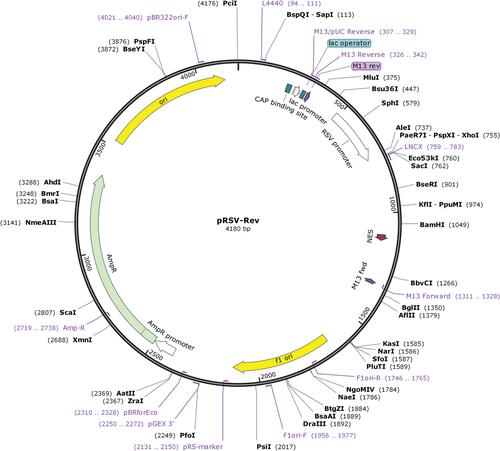下载PDF
{"title":"人诱导多能干细胞中TP53表达的有效调控","authors":"Constanze Uhlmann, Lisa-Maria Kuhn, Julia Tigges, Ellen Fritsche, Ulf Dietrich Kahlert","doi":"10.1002/cpsc.102","DOIUrl":null,"url":null,"abstract":"<p>TP53 point mutations are found in 50% of all cancers and seem to play an important role in cancer pathogenesis. Thus, human induced pluripotent stem cells (hiPSCs) overexpressing mutant TP53 are a valuable tool for the generation of in vitro models of cancer stem cells or for in vivo xenograft models. Here, we describe a protocol for the alteration of gene expression in hiPSCs via overexpression of a mutant form of the <i>TP53</i> (R249S) gene using lentiviral transduction. A high amount of TP53 protein is detected 1 week after transduction and antibiotic selection. Differentiation of transduced hiPSCs gives insight into better understanding cancer formation in different tissues and may be a useful tool for genetic or pharmacologic screening assays. © 2019 The Authors.</p><p><b>Basic Protocol 1</b>: Production and concentration of third-generation lentivirus</p><p><b>Support Protocol 1</b>: Cloning of gene of interest into modulation vector</p><p><b>Support Protocol 2</b>: Preparation of DMEM GlutaMAX™ with 10% fetal bovine serum and 1% penicillin-streptomycin</p><p><b>Basic Protocol 2</b>: Transduction of human induced pluripotent stem cells and selection of positively transfected cells</p><p><b>Support Protocol 3</b>: Preparation of Matrigel<sup>®</sup>-coated plates</p><p><b>Support Protocol 4</b>: Preparation of mTeSR™1 medium</p>","PeriodicalId":53703,"journal":{"name":"Current Protocols in Stem Cell Biology","volume":"52 1","pages":""},"PeriodicalIF":0.0000,"publicationDate":"2019-12-28","publicationTypes":"Journal Article","fieldsOfStudy":null,"isOpenAccess":false,"openAccessPdf":"https://sci-hub-pdf.com/10.1002/cpsc.102","citationCount":"4","resultStr":"{\"title\":\"Efficient Modulation of TP53 Expression in Human Induced Pluripotent Stem Cells\",\"authors\":\"Constanze Uhlmann, Lisa-Maria Kuhn, Julia Tigges, Ellen Fritsche, Ulf Dietrich Kahlert\",\"doi\":\"10.1002/cpsc.102\",\"DOIUrl\":null,\"url\":null,\"abstract\":\"<p>TP53 point mutations are found in 50% of all cancers and seem to play an important role in cancer pathogenesis. Thus, human induced pluripotent stem cells (hiPSCs) overexpressing mutant TP53 are a valuable tool for the generation of in vitro models of cancer stem cells or for in vivo xenograft models. Here, we describe a protocol for the alteration of gene expression in hiPSCs via overexpression of a mutant form of the <i>TP53</i> (R249S) gene using lentiviral transduction. A high amount of TP53 protein is detected 1 week after transduction and antibiotic selection. Differentiation of transduced hiPSCs gives insight into better understanding cancer formation in different tissues and may be a useful tool for genetic or pharmacologic screening assays. © 2019 The Authors.</p><p><b>Basic Protocol 1</b>: Production and concentration of third-generation lentivirus</p><p><b>Support Protocol 1</b>: Cloning of gene of interest into modulation vector</p><p><b>Support Protocol 2</b>: Preparation of DMEM GlutaMAX™ with 10% fetal bovine serum and 1% penicillin-streptomycin</p><p><b>Basic Protocol 2</b>: Transduction of human induced pluripotent stem cells and selection of positively transfected cells</p><p><b>Support Protocol 3</b>: Preparation of Matrigel<sup>®</sup>-coated plates</p><p><b>Support Protocol 4</b>: Preparation of mTeSR™1 medium</p>\",\"PeriodicalId\":53703,\"journal\":{\"name\":\"Current Protocols in Stem Cell Biology\",\"volume\":\"52 1\",\"pages\":\"\"},\"PeriodicalIF\":0.0000,\"publicationDate\":\"2019-12-28\",\"publicationTypes\":\"Journal Article\",\"fieldsOfStudy\":null,\"isOpenAccess\":false,\"openAccessPdf\":\"https://sci-hub-pdf.com/10.1002/cpsc.102\",\"citationCount\":\"4\",\"resultStr\":null,\"platform\":\"Semanticscholar\",\"paperid\":null,\"PeriodicalName\":\"Current Protocols in Stem Cell Biology\",\"FirstCategoryId\":\"1085\",\"ListUrlMain\":\"https://onlinelibrary.wiley.com/doi/10.1002/cpsc.102\",\"RegionNum\":0,\"RegionCategory\":null,\"ArticlePicture\":[],\"TitleCN\":null,\"AbstractTextCN\":null,\"PMCID\":null,\"EPubDate\":\"\",\"PubModel\":\"\",\"JCR\":\"Q2\",\"JCRName\":\"Biochemistry, Genetics and Molecular Biology\",\"Score\":null,\"Total\":0}","platform":"Semanticscholar","paperid":null,"PeriodicalName":"Current Protocols in Stem Cell Biology","FirstCategoryId":"1085","ListUrlMain":"https://onlinelibrary.wiley.com/doi/10.1002/cpsc.102","RegionNum":0,"RegionCategory":null,"ArticlePicture":[],"TitleCN":null,"AbstractTextCN":null,"PMCID":null,"EPubDate":"","PubModel":"","JCR":"Q2","JCRName":"Biochemistry, Genetics and Molecular Biology","Score":null,"Total":0}
引用次数: 4
引用
批量引用
Efficient Modulation of TP53 Expression in Human Induced Pluripotent Stem Cells
TP53 point mutations are found in 50% of all cancers and seem to play an important role in cancer pathogenesis. Thus, human induced pluripotent stem cells (hiPSCs) overexpressing mutant TP53 are a valuable tool for the generation of in vitro models of cancer stem cells or for in vivo xenograft models. Here, we describe a protocol for the alteration of gene expression in hiPSCs via overexpression of a mutant form of the TP53 (R249S) gene using lentiviral transduction. A high amount of TP53 protein is detected 1 week after transduction and antibiotic selection. Differentiation of transduced hiPSCs gives insight into better understanding cancer formation in different tissues and may be a useful tool for genetic or pharmacologic screening assays. © 2019 The Authors.
Basic Protocol 1 : Production and concentration of third-generation lentivirus
Support Protocol 1 : Cloning of gene of interest into modulation vector
Support Protocol 2 : Preparation of DMEM GlutaMAX™ with 10% fetal bovine serum and 1% penicillin-streptomycin
Basic Protocol 2 : Transduction of human induced pluripotent stem cells and selection of positively transfected cells
Support Protocol 3 : Preparation of Matrigel® -coated plates
Support Protocol 4 : Preparation of mTeSR™1 medium



